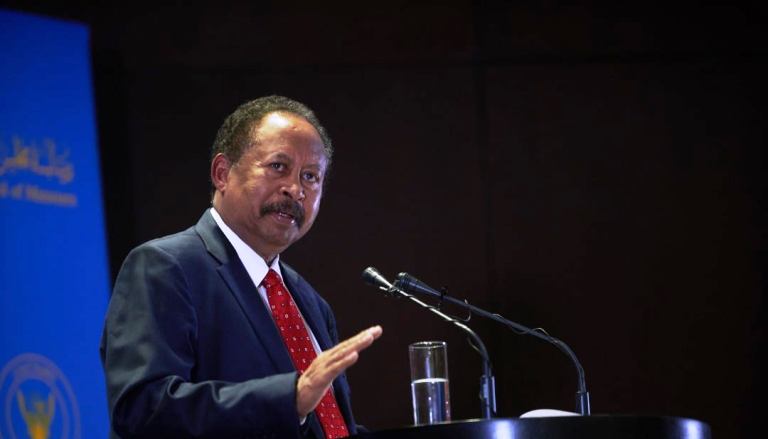Sudan’s PM calls for national mechanism to achieve transition, RSF integration

Abdallah Hamdouk launched on Tuesday an initiative aiming to agree on a national platform to achieve the democratic transition in Sudan.
He said that the country is currently experiencing a deep political crisis exacerbated by the differences between the political parties, among the military institutions and the civilian versus military power struggle.
The Prime Minister said the civilian and military component of the transitional bloc have to agree on the tasks of the transition, on top of which is the establishment of a unified professional and national army with a new military doctrine.
The call to reform the security and military sector comes after the refusal of the Deputy-Chairman of the Sovereign Council, Mohamed Hamdan Daglo “Hemetti” to integrate the RSF militiamen into the Sudanese army threatening the implementation of peace agreements.
Hamdok further stressed that discussions over the reform of security and military sectors should not be limited to the military, but must involve the political and civil society forces
“It is a key step in the whole transitional process, without it the issues of economy, transitional justice, and building a civil state cannot be resolved.”
“The Sudanese Armed Forces must be the only national army, and this requires structural reforms, a new military doctrine, representation of the Sudanese diversity at all levels, and the implementation of the security arrangements agreement contained in the Juba Agreement for the Peace of Sudan,” he stressed.
He underscored the need to involve the government in the discussions on the integration of the RSF, rather than limiting it to al-Burhan and Hemedti.
The RSF militiamen are rejected from the Sudanese people because of the war crimes they committed in Darfur and South Kordofan, in addition to the killing of peaceful protesters participating in a pro-democracy sit-in outside the General Command of the Sudanese army in Khartoum on 3 June 2019.
The militia supported the popular revolution that overthrew the al-Bashir regime. However, their well-documented participation in the bloody attack on the sit-in made them unacceptable in Khartoum.
Also, the seizure of several gold mines and their management by a company owned by Hemetti and his family also contributed to its rejection.
Intelligence service and police
with regard to the intelligence service and the police, Hamdok demanded the implementation of the reforms related to these services as provided in the constitutional document.
He said the government should manage the General Intelligence Service (GIS) which replaced the NISS of the former regime.
Apart from changing its name, the GIS is still directed by the same staff appointed by the former regime and keeps the same structures, except the dismantled Operation Department.
In his proposal, Hamdok again spoke about the need to review the economic activity of the army and to limit it to the military industries.
The initiative also dealt with a number of other issues, such as the formation of a transitional parliament within a month and handing over wanted former officials to the International Criminal Court.
Hamdok said he discussed his initiative with the military, political, and civilian forces.
“We expect that these consultations will lead to the formation of a mechanism to achieve a consensus among Sudanese. I want to call it the Transition Protection Mechanism.”
(ST)
